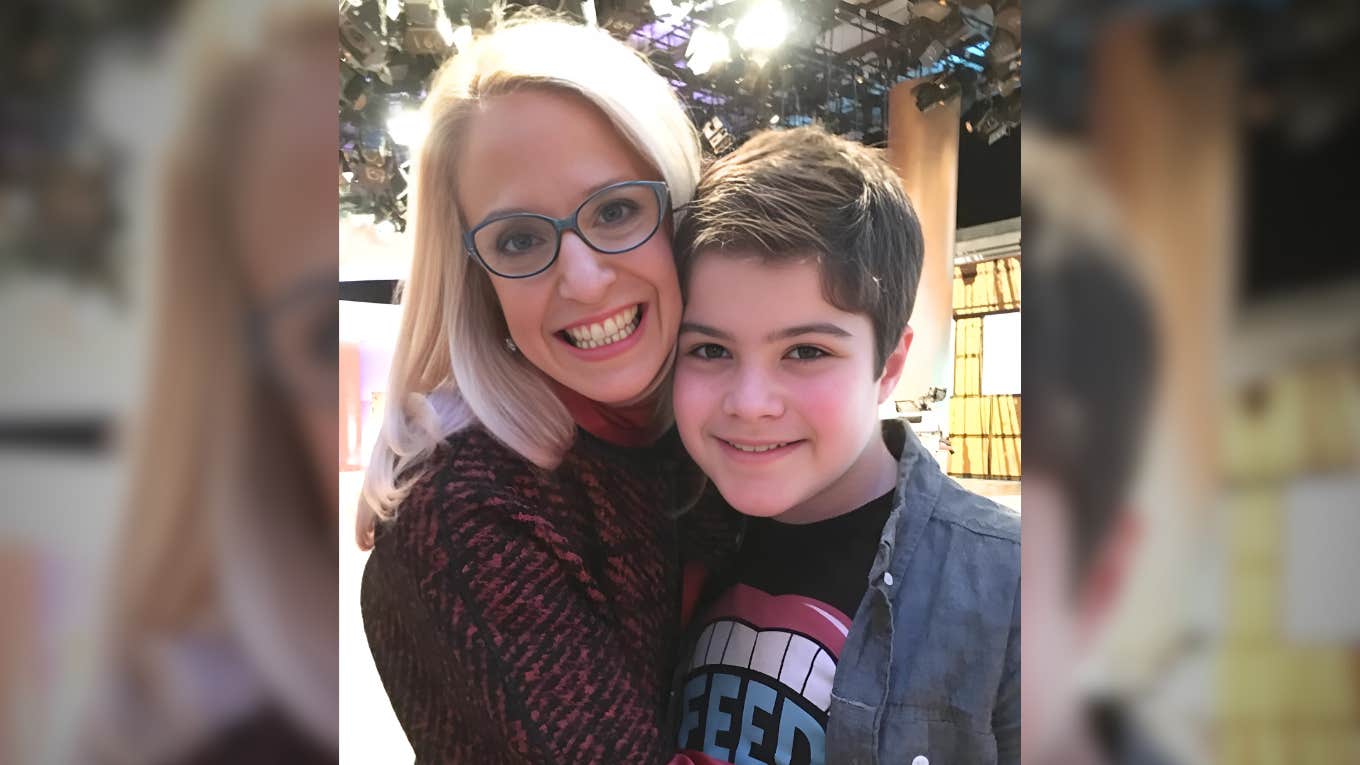I Lost My 16-Year-Old Son To Fentanyl — Here Are The Warning Signs I Missed
I thought I was paying attention, until it was too late.
 Courtesy of Author
Courtesy of Author When I found my sweet boy dead on the floor of his bedroom on February 7, 2021, I had no idea that, to obtain this drug, he didn't have to go out and find a drug dealer. Drug dealers would be matched with him through the algorithm on Snapchat, soliciting him and sending him a menu of drugs that they would deliver as easily as a pizza.
Drugs that would be laced with deadly fentanyl, which just takes a few grains of sand to kill you. That's what happened to Sammy. He got something through a dealer on Snapchat that was almost pure fentanyl, and it killed him. Since then, life has never been the same.
And as a parent, there is no deeper or wider pain than losing a child to a drug overdose.
It's almost impossible to describe. I've been on a healing journey since then and have learned so much. So much of my time has been spent advocating for social media safety and fentanyl awareness, helping parents understand how to keep their children safe, and encouraging parents to use my child as a cautionary tale. But I've also been learning how to heal.
As a therapist, I knew a lot about grief healing, but now I have been in a PhD-level life course. Since losing Sammy, I have learned how many people have no idea how to navigate through the grieving process. Not just losing a child, but any kind of loss.
 Gladskikh Tatiana / Shutterstock
Gladskikh Tatiana / Shutterstock
I have been lucky because I have had so many beautiful healers, friends, and teachers who have so much wisdom to share and who have come into my life and helped me. They helped me not only go through this loss, but grow through this loss, find peace, find clarity, and even be able to stay in a relationship and communicate with my son on the other side.
Because of the support I experienced and how rare I know that support can be, I've decided to create a day of healing on December 2; it's called Good Grief Day.
A whole bunch of my favorite healer friends who have helped me so much over the past couple of years are volunteering their time along with me to do this event in Hermosa Beach, California on December 2nd, and all proceeds from that event are going to go toward taking mamas who have lost their children on a healing retreat.
One of the many things I've learned over the past two and a half years, meeting thousands of other parents like me, is that if mom is not okay, nobody is okay. I've seen so many families and siblings who have lost children fall apart because nobody knows how to grieve, so that's part of why I'm here.
Not only to help people love and be loved better, but I now understand it's to help people heal. We don't have to go through pain, we can grow through it. It can be a portal of transformation, heart-centered growth and healing — and connection and peace and grace, most of all.
What I want other parents to know about kids, drugs, and social media
If you are a parent, understand (I wish I had understood this) that if you allow your children on social media — and most of us do, because that's where they socialize — you just have to know what it is that you're doing.
Letting them be on social media is the equivalent of dropping your kid off in the worst part of the worst city that you can find in the darkest alleys where there are drug dealers and pimps and predators. When they are online unsupervised, you are expecting them to be able to navigate that.
That's where we are until social media companies allow parental monitoring software or change the algorithms to keep kids safer. I'm doing all kinds of advocacy work to change the laws; I'm working very hard to do that. But until that happens, this is where we are.
Creating a community of offline kids can help
So if you have younger children, I encourage you to create a pod, where you get a whole bunch of kids and families who agree to stay off social media, use flip phones to stay in communication, and create social lives that aren't built around and within social media. Until we have safety measures in place, there is no way to protect our children.
I had all those talks with Sammy. He knew all about drugs. He thought he was trying something harmless. Unfortunately, good kids make bad decisions and experiment.
Someone offered to deliver it to his door for a few bucks. He had no idea it could kill him. So I hope this gives you some strategies to maybe explore some awareness at the very least.
I'm hoping you'll also join us for Good Grief Day because you're getting that support for yourself, and how to move through grief with grace and love. I wish all of you the best of luck, and I hope others can benefit from what I've learned since my son, Sammy, was killed.
Drug and alcohol addiction is incredibly common.
The Substance Abuse and Mental Health Services Administration (SAMHSA) reports that approximately 20.3 million people above the age of 12 have suffered from a substance use disorder in the past year. According to SAMHSA’s 2018 National Survey on Drug Use and Health, close to 2 million people of the same age bracket have suffered from opioid use disorders, and 14.8 million from alcohol use disorders.
Misusing alcohol and other drugs can be detrimental to your immediate and long-term physical, emotional, and mental health.
Alcohol and drug addiction is something to take seriously, although often overlooked. Anyone of any race, age, sexual orientation, religion, or gender can suffer from alcohol and drug addiction.
Recovering from an addiction is more than just abstaining from drugs or alcohol. It’s about investigating the internal framework of your brain, rewiring your thought patterns, and actively changing behaviors over a long period.
If you or someone you know is suffering from addiction, there are resources to get help.
The process of recovery is not linear, but the first step to getting better is asking for help. For more information, referrals to local treatment facilities and support groups, and relevant links, visit SAMHSA’s website. If you’d like to join a recovery support group, you can locate the nearest Alcoholics Anonymous or Narcotics Anonymous meetings near you. Or you can call SAMHSA’s National Helpline at 1-800-799-7233, which is a free 24/7 confidential information service in both English and Spanish. For TTY, or if you’re unable to speak safely, call 1-800-487-4889.
Dr. Laura Berman is a relationship therapist, best-selling author, and television host. Her work focuses on helping others heal and has founded Good Grief Day.

